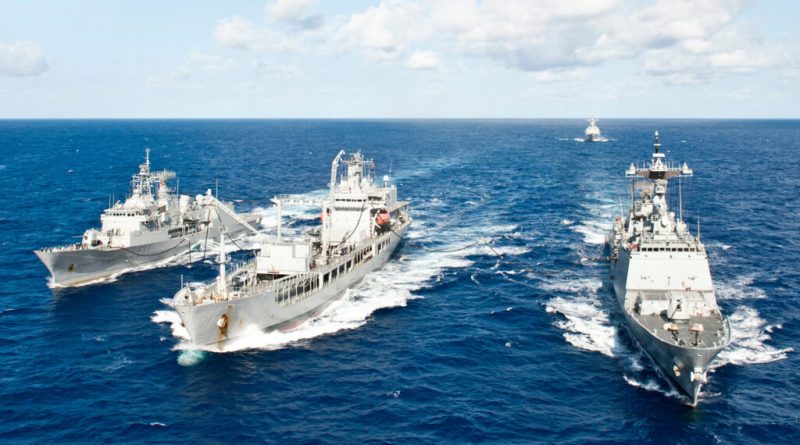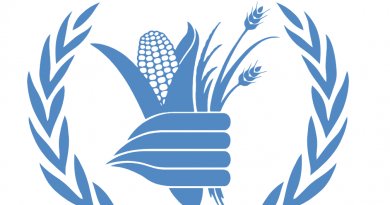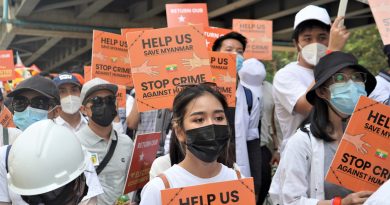China Steps Up Military Drills Near Taiwan
Kaila Engle
Staff Writer
On Saturday, April 8, China began scheduling military exercises near Taiwan. China and Taiwan have been adversaries for decades because Taiwan wants independence, while China believes it to be an extension of Chinese territory that is located off the mainland and advocates for a one-country-two-systems policy. Military tensions, specifically, have been steadily growing, and the international community has varied opinions on this sovereignty debate. Taiwan has a variety of formal diplomatic supporters according to The Independent, including Belize, Eswatini (formerly known as Swaziland), Guatemala, Haiti, the Holy See (the central administration of the Roman Catholic Church), the Marshall Islands, Nauru, Palau, Paraguay, Saint Kitts and Nevis, Saint Lucia, Saint Vincent and the Grenadines, and Tuvalu. These are small underdeveloped, or developing nations, and Taiwan has no official recognition from any larger nations or international superpowers.
In the past few years, Taiwan has been losing support from many nations, such as Nicaragua, Honduras, the Solomon Islands, and Kiribati. This is because of Chinese economic expansion and the unstable political climate in some of these regions. The United States has taken an officially neutral position in this conflict. It has an unofficial relationship with Taiwan wherein they do not officially support their independence but do engage with them economically, according to the U.S. Department of State.
On Monday, April 10, after three days of recurring military exercises near Taiwan, the Chinese government implied that it was “ready to fight” and could be pushed to begin engaging in active, armed conflict. They said that “The theater’s troops are ready to fight at all times and can fight at any time to resolutely smash any form of ‘Taiwan Independence’ and foreign interference attempts.” The Associated Press reports that these actions isolated and sealed off the island and were made in response to the Taiwanese president, Tsai Ing-wen, visiting the United States the week prior. China has not recognized Taiwan’s independence and views this action as challenging its authority since it implies separate relations with the U.S. and Taiwan. The trip to the U.S. was portrayed as a representation of Taiwan’s commitment to democracy, which is seen as a challenge to the authoritarian government of China.
The exercises China has been conducting include mandated no-fly zones, missile practices, and similar military drills done to intimidate Taiwan in addition to the military drills. The Global Times, the Chinese government’s state-controlled media outlet, released an animated simulation video of missiles being fired from China to Taiwan. The Guardian reports that even after the military drills were scheduled to end, the China People’s Liberation Army (PLA) maintained a military presence around Taiwan. On Tuesday, April 11, Taiwan’s defense ministry determined that the PLA had 35 aircraft and eight vessels surrounding their borders. This could be due to logistical delays in removing the military vessels fully, but it is most likely another way to intimidate Taiwan.
Reuters reports that the unofficial border between the two regions is referred to as the Taiwan Strait, and there have been Chinese navy ships and surveillance edging or crossing the border in lieu of the drills. All of these actions serve as a warning and an implied threat to the Taiwanese government, and Taiwan’s continued correspondence with the U.S. may raise tensions and lead to ensuing conflict.
Despite the looming threat China poses, the Taiwanese government has maintained a strong front. President Tsai’s office reported to Reuters that they would not “escalate conflict nor provoke disputes” but would work to strengthen Taiwan’s military. There is no counterattack proposed by their office, and it brings into question how far they can allow China to push until they begin to lose their autonomy.
There has been some international controversy over these actions. French President Emmanuel Macron had visited China before these actions and urged the European Union to rely less on the United States, reports Reuters. He coined the controversy with Taiwan as driven by an “American rhythm and a Chinese overreaction.” France and the United States have been long-time allies, but these actions may imply a shift in perspective as China rises as a strong global and economic power.
Image courtesy of Agenzia Nova



